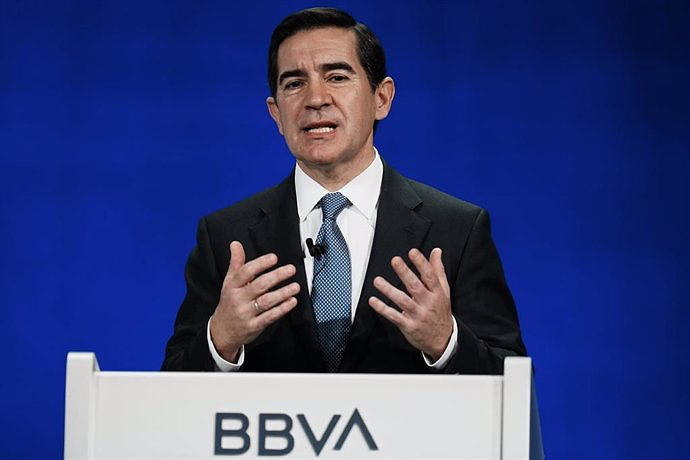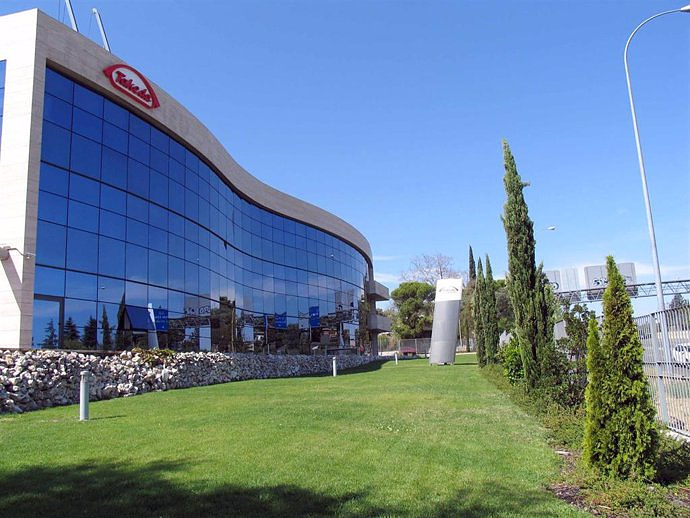The Armed Institute is committed to prioritizing this task "as much as possible"
MADRID, 4 Nov. (EUROPA PRESS) -
The Civil Guard has responded to the judge of the National Court (AN) Alejandro Abascal that the delay in the preparation of the report that he commissioned on June 20 on the attack perpetrated by ETA on May 30, 2003 in the Navarran city of Sangüesa , which ended the lives of two policemen, is due to the large amount of documentation to be analysed, although he has assured that he will try to prioritize this task.
"For the preparation of the requested report, it is necessary to consult and analyze numerous files, a task that is being carried out, but which has prevented prompt attention to the aforementioned judicial request for the time being," the Benemérita explains in a letter to which she has had access Europa Press.
At the same time, the Armed Institute takes the opportunity to convey to the person in charge of the Central Court of Instruction Number 1 that his request "will try to prioritize everything possible in order to proceed to its prompt completion."
Abascal had requested both the Civil Guard and the National Police to give him an account of the status of the required reports, thus responding to a request made by the Dignity and Justice Association (DyJ), which demanded a "procedural impulse".
In his letter, DyJ was aware of "the great workload and the commendable effort on the part" of the National Police and the Civil Guard, but drew attention to the fact that for this crime there is no one "convicted to death." date", "neither as material author nor as mediate author".
"This part understands that we are here before a particularly sensitive case, in which the two fatalities and their families have been left in a particularly serious situation of total sustained impunity for 19 years," he stressed.
Along the same lines, he highlighted that these are "two of the 379 completely unpunished cases of ETA that have been recognized by the European Parliament in its recent resolution."
Last April, the instructor admitted the Dignity and Justice complaint against the eight members of the ETA executive committee or zuba at the time of the attack --María Soledad Iparraguirre, alias 'Anboto'; Mikel Albisu, 'Mikel Antza'; Ramón Sagarzu, 'Ramontxo'; Gorka Palacios; Garikoitz Aspiazu; Aitzol Iriondo; Felix Ignacio Esparza; and Juan Fernández Iradi-- and against Garikoitz Arruarte and Gorka Lorán as alleged perpetrators.
The instructor underlined that these former ETA chiefs sought during their mandate "to create a state of total terror", to generate the feeling "of not knowing where the next attack was going to come from."
Abascal emphasized that the sequence of attacks that began on May 30, 2003 with the events in Sangüesa "was nothing more than the beginning of a terrorist 'offensive', of a strategic shift, clearly different from the preceding months or year, and that plagued the Spanish geography with explosive devices.

 Exploring Cardano: Inner Workings and Advantages of this Cryptocurrency
Exploring Cardano: Inner Workings and Advantages of this Cryptocurrency Seville.- Economy.- Innova.- STSA inaugurates its new painting and sealing hangar in San Pablo, for 18 million
Seville.- Economy.- Innova.- STSA inaugurates its new painting and sealing hangar in San Pablo, for 18 million Innova.- More than 300 volunteers join the Andalucía Compromiso Digital network in one month to facilitate access to ICT
Innova.- More than 300 volunteers join the Andalucía Compromiso Digital network in one month to facilitate access to ICT Innova.-AMP.- Ayesa acquires 51% of Sadiel, which will create new technological engineering products and expand markets
Innova.-AMP.- Ayesa acquires 51% of Sadiel, which will create new technological engineering products and expand markets Trump's defense accuses 'Stormy Daniels' of inventing relationships between the two to make money
Trump's defense accuses 'Stormy Daniels' of inventing relationships between the two to make money James Costos resigns as director of Grifols, which calls a meeting for next June 14
James Costos resigns as director of Grifols, which calls a meeting for next June 14 Ferrovial announces dividend of 0.3033 euros payable in cash or shares from June 21
Ferrovial announces dividend of 0.3033 euros payable in cash or shares from June 21 Greening Group expects to reach a turnover of 430 million and an Ebitda of 70 million in 2026
Greening Group expects to reach a turnover of 430 million and an Ebitda of 70 million in 2026 How Blockchain in being used to shape the future
How Blockchain in being used to shape the future Not just BTC and ETH: Here Are Some More Interesting Coins Worth Focusing on
Not just BTC and ETH: Here Are Some More Interesting Coins Worth Focusing on Expociència expects to receive more than 4,000 visitors in the Science Park of the University of Valencia
Expociència expects to receive more than 4,000 visitors in the Science Park of the University of Valencia They develop devices for the precise diagnosis of cancer patients
They develop devices for the precise diagnosis of cancer patients UMH researchers are working on a high-quality apricot crop that requires less irrigation water
UMH researchers are working on a high-quality apricot crop that requires less irrigation water The UPV develops an application to improve the quality of life of patients with glioblastoma
The UPV develops an application to improve the quality of life of patients with glioblastoma A million people demonstrate in France against Macron's pension reform
A million people demonstrate in France against Macron's pension reform Russia launches several missiles against "critical infrastructure" in the city of Zaporizhia
Russia launches several missiles against "critical infrastructure" in the city of Zaporizhia A "procession" remembers the dead of the Calabria shipwreck as bodies continue to wash up on the shore
A "procession" remembers the dead of the Calabria shipwreck as bodies continue to wash up on the shore Prison sentences handed down for three prominent Hong Kong pro-democracy activists
Prison sentences handed down for three prominent Hong Kong pro-democracy activists ETH continues to leave trading platforms, Ethereum balance on exchanges lowest in 3 years
ETH continues to leave trading platforms, Ethereum balance on exchanges lowest in 3 years Investors invest $450 million in Consensys, Ethereum incubator now valued at $7 billion
Investors invest $450 million in Consensys, Ethereum incubator now valued at $7 billion Alchemy Integrates Ethereum L2 Product Starknet to Enhance Web3 Scalability at a Price 100x Lower Than L1 Fees
Alchemy Integrates Ethereum L2 Product Starknet to Enhance Web3 Scalability at a Price 100x Lower Than L1 Fees Mining Report: Bitcoin's Electricity Consumption Declines by 25% in Q1 2022
Mining Report: Bitcoin's Electricity Consumption Declines by 25% in Q1 2022 Oil-to-Bitcoin Mining Firm Crusoe Energy Systems Raised $505 Million
Oil-to-Bitcoin Mining Firm Crusoe Energy Systems Raised $505 Million Microbt reveals the latest Bitcoin mining rigs -- Machines produce up to 126 TH/s with custom 5nm chip design
Microbt reveals the latest Bitcoin mining rigs -- Machines produce up to 126 TH/s with custom 5nm chip design Bitcoin's Mining Difficulty Hits a Lifetime High, With More Than 90% of BTC Supply Issued
Bitcoin's Mining Difficulty Hits a Lifetime High, With More Than 90% of BTC Supply Issued The Biggest Movers are Near, EOS, and RUNE during Friday's Selloff
The Biggest Movers are Near, EOS, and RUNE during Friday's Selloff Global Markets Spooked by a Hawkish Fed and Covid, Stocks and Crypto Gain After Musk Buys Twitter
Global Markets Spooked by a Hawkish Fed and Covid, Stocks and Crypto Gain After Musk Buys Twitter Bitso to offset carbon emissions from the Trading Platform's ERC20, ETH, and BTC Transactions
Bitso to offset carbon emissions from the Trading Platform's ERC20, ETH, and BTC Transactions Draftkings Announces 2022 College Hoops NFT Selection for March Madness
Draftkings Announces 2022 College Hoops NFT Selection for March Madness




























